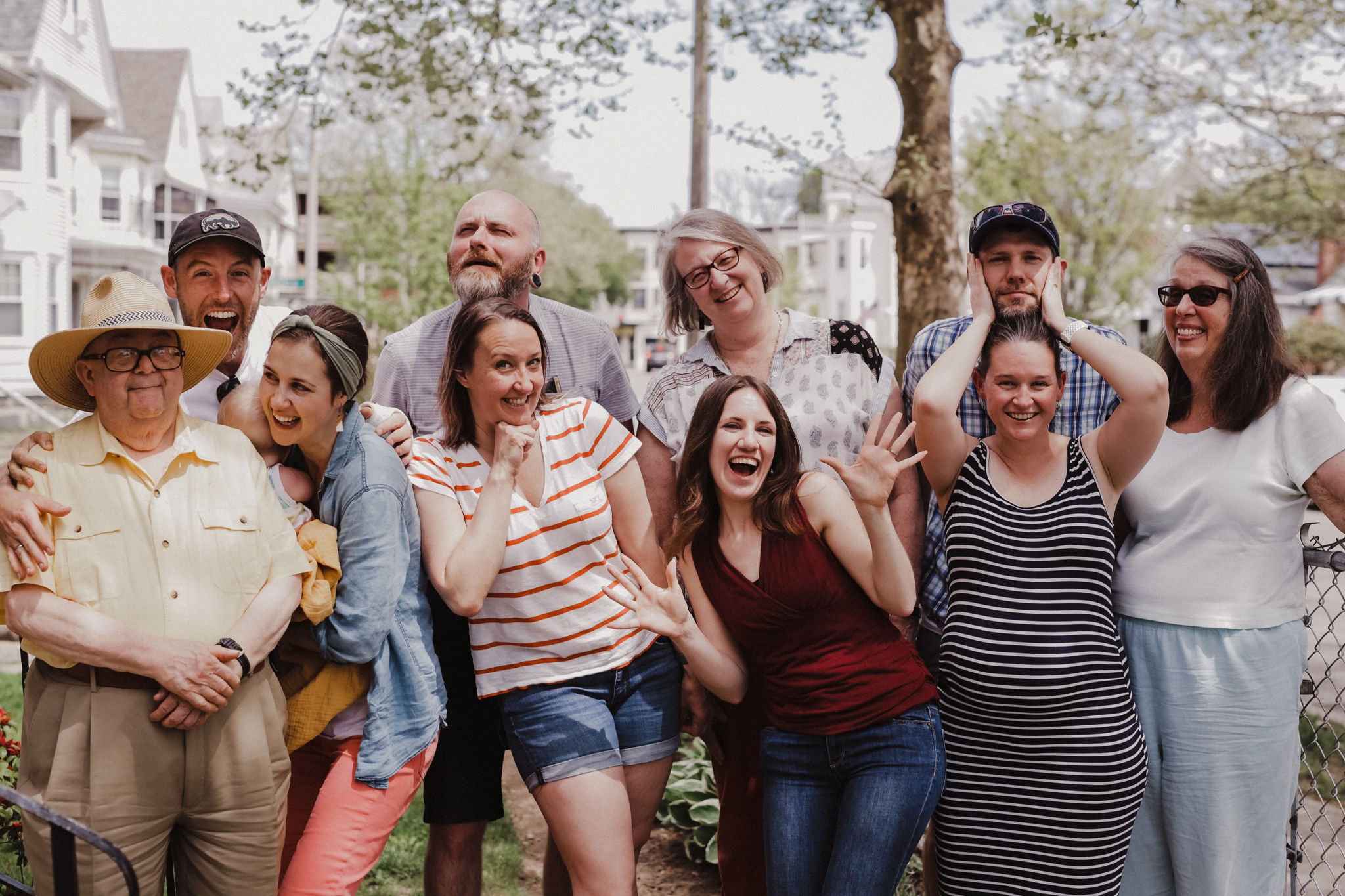Remembering the Past to Build Shalom in the Present
Remembering the Past to Build Shalom in the Present
A resource list on the history of slavery in Boston
by Megan Lietz, Founding Director, Race & Christian Community Initiative
One lesson reiterated throughout my Christian ministry education was “know your context”: learn the history, community, and concerns of the people you serve. But this discipline is often lost when it comes to cultural and racial issues, especially the history of slavery. Despite the far-reaching social, economic, and spiritual impact the institution of slavery has had on Greater Boston, none of the three Christian institutions I graduated from even mentioned our region’s involvement in the Transatlantic Slave Trade. When Christians avoid this history, we can find ourselves largely unaware of the ways the legacy of slavery continues to impact our communities. We will also be ill-equipped to respond to it as a part of Christ’s redemptive work today.
By the Numbers
Slavery was legal in Massachusetts for over 140 years.
Enslaved Black people made up about 10% of the population of Boston by the mid-18th century.
Boston was a major port in the North Atlantic Slave Trade, connected to at least 307 separate trafficking voyages.
Even after slavery was made illegal in Massachusetts in 1783, our region continued to enable and benefit from slavery in the South through our local textile, shipbuilding, fishing, insurance, and finance industries.
The Church needs to wrestle with our region’s involvement in the Transatlantic Slave Trade. Other than the fact that local congregations were complicit in and directly benefited from the trade, the institution of slavery shaped our theology, practice, and congregational landscape. What is more — like any sin — we must confess, lament, and repent from the sin of slavery to see healing and transformation.
Theological Foundation
"For You Were Slaves in Egypt": History, Memory, and Implications for Christian Discipleship: The Bible calls us to remember the past. Dr. Nicholas Rowe explores this biblical mandate and how it can form us as followers of Jesus in the Haymanot Journal, the official publication of the Society of Gospel Haymanot.*
Slavery and Abolition: How the Early Church Got it Right: One way we can better understand the teachings of Scripture is to see how they were understood and lived out by the Early Church. Check out this video by Mako Nagasawa, director of The Anástasis Center for Christian Education and Ministry, highlighting how Christians who supported slavery deviated significantly from the views and practices of the Early Church.
The Freedom of the Slaves: Throughout history, the Bible has been used to both defend and oppose the institution of slavery. What do we do with Scripture that seems to support the enslavement of human beings? Explore Chapter 7 of Esau McCaulley’s book, Reading While Black, which offers one perspective on interpreting the biblical passages on slavery while maintaining a high view of Scripture.
Living History: Historical Sites to Visit in Greater Boston
Royall House & Slave Quarters: Walk the grounds of a Northern plantation and learn about the enslaved people who lived and labored in the Medford, Massachusetts, of the 1700s. The Royall House explores the history of slavery through the lens of power and speaks the truth about our history in ways that feel interconnected and intimate. If there’s one site you visit, let this be the one.
Museum of African American History & African Meeting House: Learn about the contributions of Black people in Boston in the 18th and 19th centuries, including their involvement in the abolitionist movement. Don’t miss the African Meeting House, funded and built by Black people in 1806, also considered the oldest extant Black church building in the U.S.
King’s Chapel: King’s Chapel is one of many historically white congregations acknowledging its connections to the Transatlantic Slave Trade and working to make things right. Watch a video about the history of slavery in the Chapel and consider donating to their memorial to honor enslaved people connected to their congregation.
Change Makers: Local Organizations Directly Addressing the Legacy of Slavery Today
Boston People’s Reparations Commission: Join the Boston People’s Reparations Commission as they seek apology, reparations, and reconciliation for the legacy of Black enslavement in Boston. These local efforts are part of a more extensive work of repair throughout the nation and state.
City of Boston’s Reparations Task Force: The City of Boston commissioned a task force in 2022 to learn about the legacy of slavery in Boston and make recommendations for reparative justice. Information about how to join upcoming meetings and recordings of past gatherings are available online.
Episcopal City Mission: Episcopal City Mission is setting an example of how to engage a denomination in the ongoing work of repair. Learn how they mobilize congregations to get involved in policy change, reparations, and solidarity economics to shrink the racial wealth gap.
Resources: Learn More About the History of Slavery in Boston
Exhibit on the History of Slavery in Boston: This exhibit provides a concise overview of the history of slavery in Boston. It is available online or for in-person viewing in the basement of Faneuil Hall, a building named after slave trader Peter Faneuil.
Mapping the Enslavement History of the Freedom Trail: Tourists come from around the world to walk Boston’s Freedom Trail. Ironically, many of the sites have connections to slavery. Explore this interactive webpage to learn how the American Revolution was entangled with and dependent on a racial caste system that did not seek freedom for all.
Embrace Boston’s “Harm Report”: The legacy of slavery has had a profound impact that still lives on today. Read Embrace Boston’s “Harm Report” to learn how this legacy continues to shape our city in seven impact areas. Embrace Boston also convenes statewide meetings for those working toward reparations, where anyone can learn about reparation efforts and how you can contribute to repair.
Learning about the history of slavery in our region is not easy. But remembering the pain of the past can help us heal. When God judged Israel with venomous snakes in the wilderness, he told Moses to make a bronze snake that anyone who had been bitten could look at and live (Num. 21:4-9). They had to look at the object that caused harm to receive healing. Similarly, the Church in Greater Boston must look at our region’s history and understand how the legacy of slavery continues to impact us. We must look to the past to build shalom today.
Are there other resources related to the history of slavery in Boston that we should share with others? Please let us know by filling out the contact form below.
Next Steps
Take time to respond to this history through the practice of lament. Learn more and explore tools to guide your own lamentations.
Learn more about RCCI’s experiential learning weekend on the history of slavery in Boston.
Contact Megan about hosting the experiential learning weekend on the history of slavery in Boston for your community through an immersive experience or course.
Make the learning weekend experience more accessible to future participants by contributing to our scholarship fund. Donate via the link below and put “ELW Scholarship Fund” in the subject line.
Special thanks to the 2024 Experiential Learning Weekend Sponsors whose financial gifts helped make our inaugural weekend possible and supported the creation of this resource page.
Want to learn more about the impact of slavery and racism on Boston? Here is a list of resources on the city’s long and complicated racial history.
*Nicholas Rowe. “For You Were Slaves in Egypt”: History, Memory, and Implications for Christian Discipleship. Haymanot Journal, Vol. 2, 2022, pp. 46-57.









































